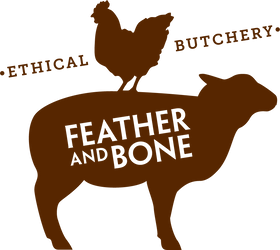The Mystery of Spent Layers
Above: chooks at Gillinghall Farmer Brown Pastured Egg farm, Spicers Creek, NSW. Taken by Mr Bone on a visit in November 2016.
The other day we received an email from a customer that reminded us, yet again, of how ignorant we are. What, this customer asked, happens to the spent layers from the egg farms you represent?
'Spent layers', for the uninitiated, are egg laying birds that are past their prime whose output is increasingly irregular, rendering them economically inefficient. The cost of feed and inputs remains the same but their earning capacity is greatly reduced. In the intensive egg industry, which is all about efficiency and return, these hens are given short shrift and meet a miserable end and our customer was deeply distressed by the idea that he might be somehow complicit in barbaric and inhumane treatment of animals every time he made himself an omelette. In particular, he was responding to the disturbing ABC 7.30 story aired on Thursday 16 November which showed illegally obtained footage of spent layer chickens suffering dreadful treatment.
For our part, we were brought up short as we realised that we didn't know the answer to this question and, what's more, it hadn't even occurred to us to ask. We do know that everything on a farm has a purpose and needs to carry it's weight and it stands to reason that hens with erratic laying patterns on an egg farm will be given short shrift. But, we'd never taken the next step to ask what happens next?
Our ignorance (or laziness) could perhaps be excused because, given their humane and regenerative farm management practices, we'd just assumed that the approach to the issue of stock replenishment by the farmers with whom we work would be equally sympathetic and intelligent. But we didn't actually know and that wasn't really good enough. Particularly when you make the kind of self-righteous song and dance that we do about provenance and facts and transparency and integrity and yada yada yada.
So, we did some research and we found out what happens to the 'spent' layer chickens at the four farms whose eggs we sell. Below is a picture of one of them.

Above: working ex-layer at Extraordinary Pork farm outside Dubbo with Farmer Michael. Photo taken by Farmer Alexandra.
Hugh Maurice, Farmer Brown Pastured Eggs
Spicers Creek, NSW
We keep our chooks longer than most egg farmers and, when their productivity really starts to decline, we sell them as backyard chooks. We also send some to our neighbours at Extraordinary Pork who run them in their pastures with their pigs where the chooks help to keep insect populations at the right levels, break up and distribute manure and add fertiliser.

Fiona Smith, Working with Nature
Guyra, NSW
Our spent layers are sold off to ‘backyarders’ & live an extended life - re-homed. The ones they are truly spent are put to sleep & composted on farm. It’s a small operation so all doable. I then use that compost around my farm trees that I am planting for shelter.
Ann Eggert, OxHill Organics
We keep our chooks longer than the average free range operation and when are past their useful commercial laying life, we try to sell them as backyard chooks. The ones we can't sell, we humanely kill in the paddock in small batches and then the carcasses are put in our organic compost pile to be re-spread over the farm.
Roger Shannon, Carbeen Pastured Produce
At Carbeen we ‘retire’ our hens. That is too say we repurpose them. When our hens lay rate falls below commercial viability we remove them from the paddock trailers and place them in our ‘shed run’. This is a repurposed old hayshed. The shed run is where we put our semi-matured compost made from broiler litter and other farm organic materials. This compost has already been sterilised from pathogens through the heat process.
The old hens are then used to turn the compost to complete the maturation process, we add farm green waste to the compost for the hens and they live out their lives happy and still performing function on the farm. Nest boxes are provided in the shed and we still get some return from them for eggs. When their time comes they pass and are in turn added to the first compost pile (not in the shed) and so we make use of the hens retained nutrients and completing our life/nutrient cycle.
To us, all of these answers are unsurprising, reassuring and very enterprising. They reinforce our respect and gratitude to these farmers and remind us, yet again, of the way smart farmers work with systems rather than products.
An egg farmer isn't an egg farmer. He or she is a farmer of fertility and balance.





Leave a comment